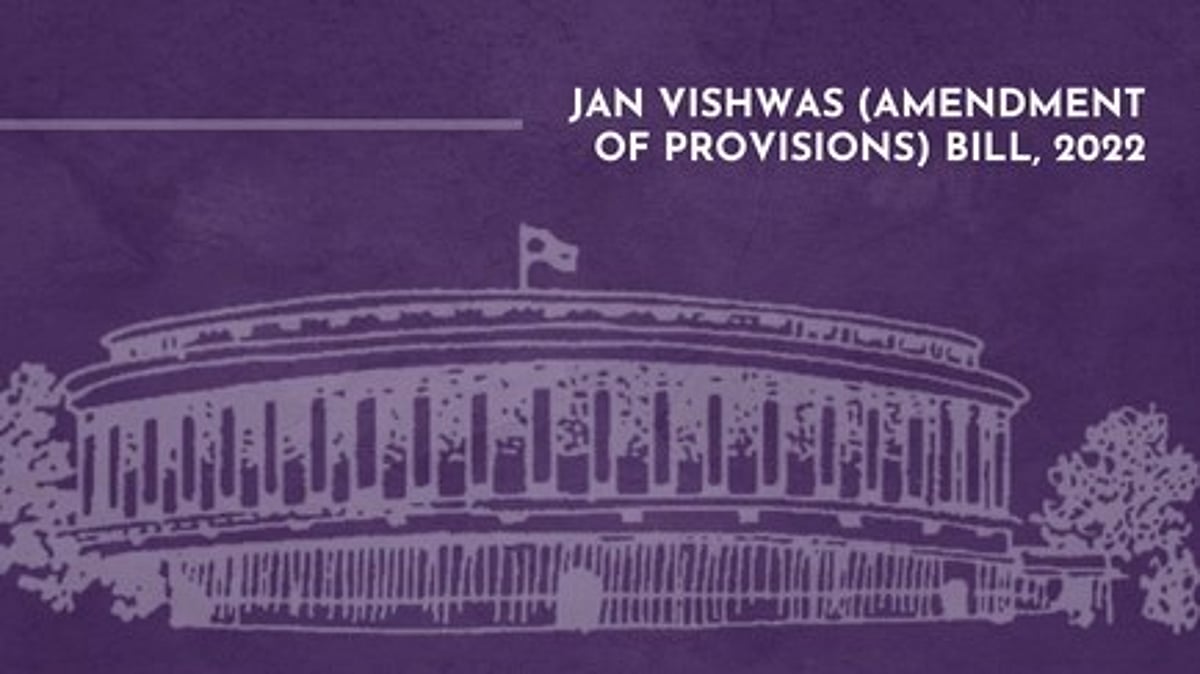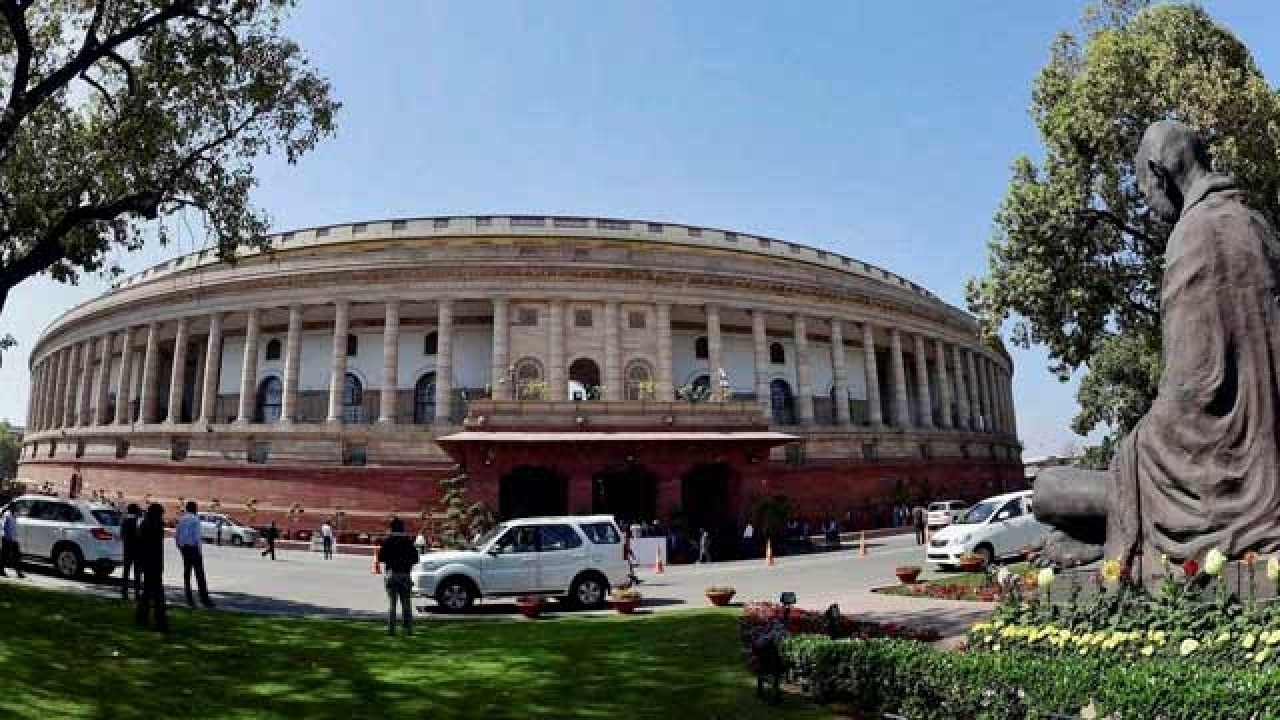A New Era for Businesses: Lok Sabha Clears Jan Vishwas Bill, Decriminalising Hundreds of Offences 2023

A New Era for Businesses: Lok Sabha Clears Jan Vishwas Bill, Decriminalising Hundreds of Offences 2023
The present Bill’s decriminalisation of the 183 clauses implies reduced fines and punishments for infractions.
The Jan Vishwas (Amendment of Provisions) Bill, approved by the Lok Sabha on Thursday and opened the door for decriminalising hundreds of offences—among them numerous economic ones—has since been taken a step further by the administration. It has established a working group of government representatives, business organisations, and lawyers to examine other legislation and look for sections that may be changed, with the primary goal of boosting ease of doing business and living.

The Narendra Modi government has already repealed more than 1,500 outdated laws, some of which date back to colonial times, to provide relief to the populace, commerce and industry minister Piyush Goyal said just before the Bill amending 183 provisions across 42 Acts managed by 19 ministries passed muster. The present Bill’s decriminalisation of the 183 clauses implies reduced fines and punishments for infractions.
The minister added that to encourage ease of doing business and ease of living, the government has decriminalised 3,600 laws and reduced the burden of 40,000 compliance requirements under various directions during the past nine years.
The Bill was presented to Parliament in December 2022, and the Joint Committee of Parliament was asked to study and provide comments. The government adopted six of the committee’s seven recommendations, including creating an expert working group to review additional legislation. The Upper House will now consider passing the Bill.

The minister announced that the National Housing Bank (NHB), National Bank of Agriculture and Rural Development, and Central Pollution Control Board will also be represented in the committee.
The government has agreed with the committee’s recommendations that “fines” for violations of several Acts that the Bill proposes to alter should be renamed “penalties” and that mechanisms for appeal and adjudication should be established to recover penalties.
However, it rejected the suggestions that the new rules apply to earlier instances of law infractions under the statutes under review. “We are unable to make it retroactive. After a legal consideration, we decided against accepting the proposition, Goyal said.
The Jan Vishwas Bill, led by the Department for Promotion of Industry and Internal Trade (DPIIT), seeks to enhance business growth by eliminating the risk of legal consequences for minor, technical, and administrative mistakes.
The Press and Registration of Books Act, the Boilers Act, the Indian Forest Act, the Drugs and Cosmetics Act, the Deposit Insurance and Credit Guarantee Corporation Act, the Warehousing Corporations Act, the Food Corporations Act, the Patents Act, the Prevention of Money-laundering Act, and the Food Safety and Standards Act are just a few of the laws that the Bill will change.

In the Bill, decriminalisation is suggested to be done by eliminating both jail and fine for infractions, by eliminating imprisonment while keeping or increasing fine, or by converting both to a punishment.
Additionally, it suggests implementing a compounding system in which the guilty pays an amount in return for being exempt from the penalty.
India’s lower house of Parliament, the Lok Sabha, has passed the much-awaited ‘Jan Vishwas Bill’, which signifies a significant change in the country’s legal framework for businesses. This pioneering legislation sets the stage for decriminalising numerous offences across several statutes, signalling a pro-business stance from the Indian government. This move is a significant breakthrough that could encourage domestic and foreign investors by creating a more conducive business environment in the country.
The Jan Vishwas Bill is an omnibus law designed to decriminalise many minor offences, predominantly in corporate law. It seeks to replace punitive measures with compoundable crimes across various laws. These changes are in sync with the ongoing efforts of the Indian government to instil an ‘ease of doing business culture in the nation, thereby fostering an environment where businesses can thrive without the threat of unjustified criminal sanctions.

The passage of the Jan Vishwas Bill means that businesses operating in India will now face less stringent penalties for minor offences, shifting from criminal prosecution to monetary or other compoundable crimes. It liberates businesses from fearing criminal charges for minor infractions, reducing compliance burdens and fostering an atmosphere conducive to growth.
The Bill signals a significant shift in the Indian government’s approach towards corporate law enforcement. Previously, the risk of criminal charges for minor offences could create fear and uncertainty among businesses. With the passage of the Jan Vishwas Bill, a more collaborative, rather than punitive, approach is anticipated, which should facilitate more transparency, self-compliance, and ease of business operations.
The Jan Vishwas Bill could be a significant impetus for foreign investments in India. Previously, one of the major obstacles to foreign investment was the complexity of the legal system, especially the potential for minor offences to be escalated to criminal charges. The decriminalisation initiative, alongside other ongoing reforms, should signal to foreign investors that India is serious about simplifying its regulatory landscape and nurturing a pro-business environment.

While the passing of the Jan Vishwas Bill is a significant milestone, its success depends mainly on its effective implementation. The relevant authorities must ensure that the shift from criminal charges to monetary penalties does not encourage businesses to wilfully commit offences, expecting to get away with just a financial penalty. The success of this legislation rests on striking a balance between reducing the fear of unwarranted criminal charges and maintaining a robust deterrent for unlawful business practices.
Moreover, while the Bill decriminalises many minor offences, businesses must remember that serious crimes would still attract criminal charges. It is essential to differentiate between minor infractions, decriminalised to ease business operations, and significant violations, which will continue to attract serious legal consequences.

The passing of the Jan Vishwas Bill by the Lok Sabha represents a landmark moment for businesses in India. By paving the way for the decriminalisation of hundreds of minor offences, it has the potential to ease the regulatory burden on businesses significantly. This visionary move could encourage increased investment and spur economic growth in the country.
However, the path ahead involves careful navigation and balanced implementation to ensure that easing the regulations does not increase wilful non-compliance. While it is a step in the right direction, maintaining a vigilant watch on its implications and outcomes will be critical in determining its eventual success.




